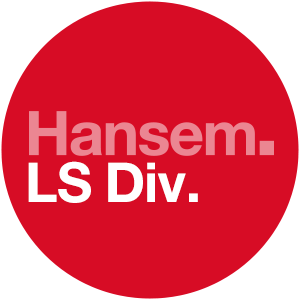Thanks to social media, marketing products directly to customers is easier than ever. Many companies forego the traditional route of hiring an outside agency to do their marketing for them, but people also forego doctors. That is to say, professionals are professionals for a reason. However, even professionals working for major firms make some pretty basic mistakes. It helps to have a set of guiding principles to refer to while working on projects and I’ve included my personal list below. This isn’t meant to be a definitive, absolute list. This is simply my own perspective. I would love to hear how you would amend this list.
LS Div.


Rule 1: Don’t talk down to your audience
Be informative, but understand that customers are probably aware of product basics already. Over-explaining simple products and features can sound patronizing or even insulting. We should avoid explaining, or even defining, basic things that everyone already knows. Efforts to be helpful can sometimes make you seem out of touch with your audience. For instance, over-explaining basic social media functions can make it seem like your product is geared toward senior citizens.
Rule 2: If it’s not true, don’t say it
Companies sometimes exaggerate their products to make them sound way better than they are. However, if statements aren’t true, then many customers will probably be able to figure it out. Instead of exaggerating, be truthful about the good bits and focus on that. Exaggerations are easily spotted, since they often sound too good to be true (because they usually are). For example, I reviewed some copywriting for a chocolate that said it would make you “thin” and “beautiful.” No one eats chocolate to be thin and it’s very doubtful that anyone will believe it in the first place. Tell them it’s delicious.
Rule 3: Don’t use buzzwords or jargon
These words are considered “in group” language and only serve to exclude outsiders. You want the business of outsiders. Essentially, we want to draw customers closer, and part of that is allowing them to understand what we’re talking about without alienating them. Our goal as communicators is to include customers in the conversation. If a regular person would need to refer to a dictionary to understand a word, don’t use it.
Rule 4: Avoid repetition
Before writing something, ask yourself if it’s been mentioned elsewhere in the document. Repetition increases the volume of the document, but not the value or content of a document. Repetition is also annoying. Some believe that repetition helps drive home the point, but usually repetition is only necessary for learning something completely new. This is why it’s emphasized for children and language learning.
Rule 5: Write clear and concise sentences
This is one of the most basic writing principles we are supposed to follow. Sentences going over 20 words can bore or lose readers. Cut the fluff.
Rule 6: Refer to others
If you want to create great marketing, you should read great marketing. Analyze the way other marketers speak and how they sell their services. You’re only bringing to the table what you’ve read.
Rule 7: Be minimal
If you want to show clients that you can write short, catchy advertisements, you don’t need to do it with a 5-page document, especially if you can do it in 2 pages. Essentially, your marketing pitch should be considered an advertisement itself. Text should be informative and interesting. Smaller details can be shared during correspondence.
Rule 8: Emphasize design
If your document’s layout is a mess and your website is unappealing, then potential customers will view this as a sign of your marketing abilities. Not everything has to be minimal, but don’t overwhelm anyone with information either.
Rule 9: If you don’t know, ask someone
There are certain pitfalls that come with marketing overseas. Whether it be cultural norms or specific word usage, there’s going to be something you don’t know. Don’t be proud. It’s better to ask a stupid-sounding question than to make a stupid-sounding advert. Measure twice, cut once.
Rule 10: Think about your target, not yourself
I think everyone naturally wants to create something that they find appealing. This may not be the best option if you are a highly sensitive, sincere person trying to market something to cynical 20-somethings. Use focus groups when possible. Focus groups are often portrayed as being too fickle, but it gives you a great chance to get real reactions from people who don’t care if you succeed or not. That is your audience.
Rule 11: Avoid high emotion (optional)
This falls under Rule #10 and it really depends on who you’re targeting. If you’re going to use high emotion, it probably won’t work on everyone, so you’d better make sure that you’re hitting your mark. No 15-year-old kid is going to beg their parents for a product that focuses on family life and treasured memories. Know your audience.
Rule 12: Be modest (optional)
There is a distinct difference between being confident and bragging. People who are the best at what they do rarely need to say so themselves. Confidence doesn’t need to announce itself, and saying your product is absolutely the best, when it’s obviously not, is more than likely to backfire. Your $200 point-and-shoot camera is not better than a $45,000 Hasselblad camera, but maybe it’s the best in its price range. The only time that ridiculously confident adverts seem to work is when over-confidence is used for the sake of humor.

Based in South Korea, HansemEUG is a leading localization service provider. Our highly skilled team can create and localize content in more than 72 languages. We work closely with clients to ensure their brands and content are accurately conveyed throughout the world. For more information about our services, please contact Brian Cho (briancho@hansem.com) or visit our website.


